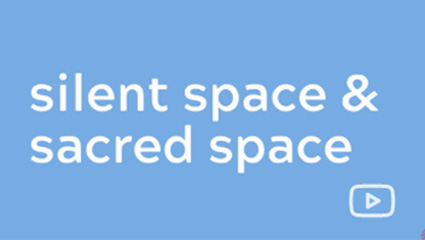Raja Yoga Meditation
FAQ
That’s OK. Open-eyed meditation is something to be practised gradually. Some people find it difficult at first. Begin with your eyes closed, then try opening your eyes for a little while. Make sure you have something to look at that is conducive to meditation. You can click here for a useful meditation image.
As with any new skill, regular practice will enhance your ability to concentrate. Try not to judge yourself harshly and accept where you are at today.
It’s good to listen to your body. It probably means you need more sleep. But it could be mental tiredness of too many draining thoughts. Rest and create the best circumstances that work for you. Keeping your eyes open and sitting in an alert posture will help. Remember, this is a new skill you are learning.
Sometimes people ‘see’ things in meditation that they do not see otherwise. For example, people see light or colour or shapes. This may occur, but it is not the aim of meditation.
Start with 5 minutes at a time. Then, see if you can slowly extend that to 10-15 minutes. It’s really about the quality of your attention rather than the length of time. Gradually, you can increase it to 20 minutes or half an hour. Once this becomes a regular routine, you may find that these 30 minutes or so will be the best part of your day.
The more you practise meditation, the more you understand it and enjoy it – and the easier it becomes. It’s good to meditate regularly, at least once a day, if you can. Set yourself realistic goals and honour these appointments with yourself.
You can meditate anywhere, indoors or outdoors. To help you concentrate, it’s better to remove any potential distractions. Obviously they sometimes can’t be removed – the noise of traffic or sounds of people outside – so it’s good to change what can be changed and accept what can’t.
If you have sat still and quiet, with the intention of meditating, then you have meditated. Usually, people are unsure at first, because meditation is something unfamiliar and they expect an instant experience of peace or positivity. But that may not be the outcome of every meditation. Just feeling more relaxed also has its value.
Anyone, of any age, can meditate. Meditation can be practised by anyone of any religion and also by those of none. Everyone can benefit from meditation.
If you have a mental health condition, please consult your doctor, as to whether meditation would be appropriate and helpful for you right now. In some cases, it’s better to wait a while and start meditating at a later stage. Meditation is not an alternative to therapy or medication.
To meditate, you do not have to believe in anything. It all depends on your specific aim and needs. Some people meditate to relax or find inner peace or develop positivity, while others want a connection with God or a Higher Being. Keeping your aim in mind, simply remain open to experimenting with the ideas presented here. Focus on what is useful for you, what works for you.
Video Guides

Guided Meditation

Who am I? | Centre the mind






